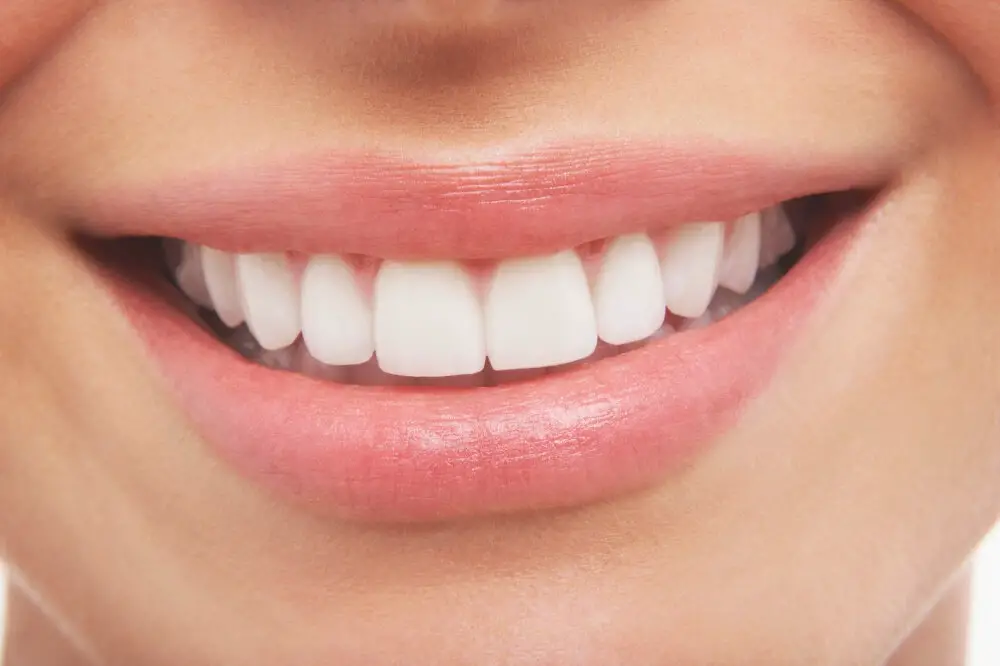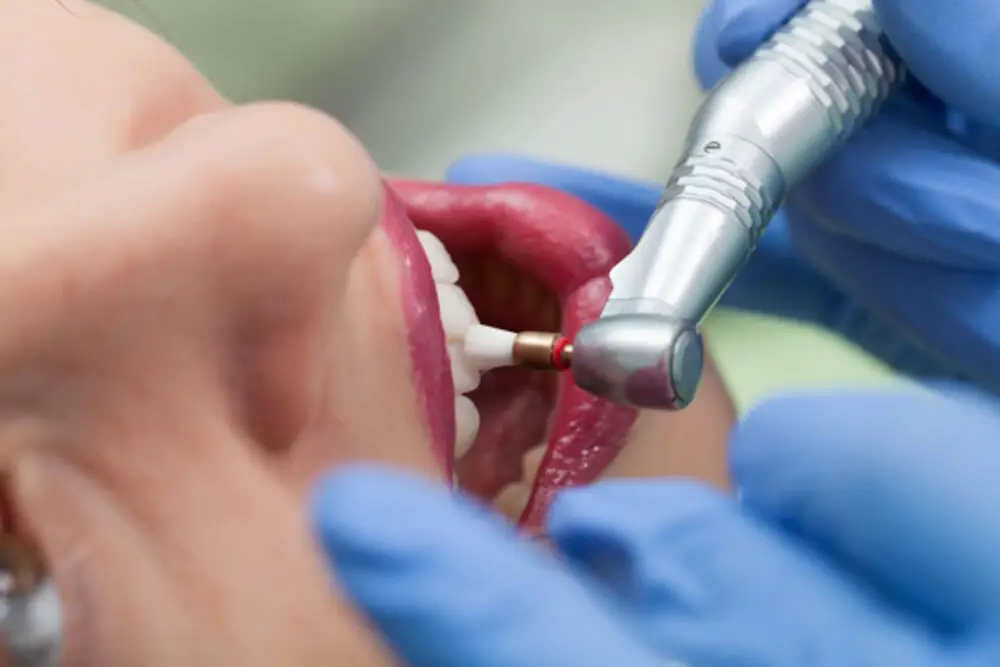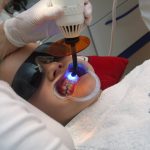Say Goodbye to Your Teeth: The Horrific Consequences of Not Brushing Daily

Have you ever wondered what would happen if you stopped brushing your teeth? The answer may surprise you. The consequences of neglecting your oral hygiene can be dire and even downright terrifying. From bad breath to tooth decay, gingivitis to periodontitis, the list of dental problems that can arise from not brushing daily is extensive. In this article, we will explore the horrific consequences of neglecting your oral hygiene and provide you with tips on how to maintain a healthy and beautiful smile. Your teeth are a vital part of your body and play a crucial role in your overall health. Neglecting your teeth can lead to a host of problems, ranging from mild discomfort to severe pain and even tooth loss. Poor oral hygiene can cause plaque buildup, which, if left untreated, can lead to cavities and gum disease. Not only can gum disease cause tooth loss, but it has also been linked to other serious health problems such as heart disease, stroke, and diabetes. It is clear that brushing your teeth daily is not just about having a bright and beautiful smile but is also essential for your overall health and well-being. So, let’s delve into the terrifying consequences of not brushing your teeth daily and learn how to prevent them.
Dental hygiene is crucial for maintaining healthy teeth and gums. Neglecting dental hygiene can lead to various oral health problems such as tooth decay, bad breath, gum disease, and even tooth loss. Poor dental hygiene not only affects your oral health but also your overall well-being, as it can lead to serious health issues such as heart disease, diabetes, and respiratory infections. Brushing your teeth twice a day, flossing daily, using mouthwash, and visiting the dentist regularly are essential components of good dental hygiene. By taking care of your oral health, you can prevent serious dental issues and ensure that your teeth and gums stay healthy for a lifetime.
Poor dental hygiene can lead to a variety of unpleasant consequences for your teeth and gums. One of the most common issues is cavities, which occur when bacteria consume the sugars in your mouth and produce acid that eats away at your tooth enamel. This can result in pain, sensitivity, and even tooth loss if left untreated. Additionally, gum disease is a serious concern for those who neglect their oral health. This condition can cause inflammation, bleeding, and infection in the gums, which can eventually lead to tooth loss and other health problems. Overall, the effects of poor dental hygiene can be painful, costly, and even dangerous if not addressed promptly.
Tooth Decay

Tooth decay is a common oral health problem that affects millions of people worldwide. It occurs when bacteria in the plaque on your teeth convert sugar and starches into acid, which in turn erodes the enamel on your teeth over time. If left untreated, tooth decay can lead to a host of serious oral health problems, including cavities, gum disease, and even tooth loss. The best way to prevent tooth decay is to practice good oral hygiene habits, such as brushing and flossing daily, using fluoride toothpaste, and visiting your dentist regularly for checkups and cleanings. Unfortunately, many people fail to take proper care of their teeth, which can have serious consequences. In addition to tooth decay, neglecting your oral health can also lead to bad breath, yellowing teeth, and even more serious health problems such as heart disease and diabetes. That’s why it’s so important to make dental hygiene a priority in your daily routine. By taking just a few minutes each day to brush and floss your teeth, you can help prevent tooth decay and maintain a healthy smile for years to come. So don’t wait – start taking care of your teeth today and say goodbye to the horrors of tooth decay!
Tooth decay is a common dental problem caused by the accumulation of plaque on teeth. Plaque is a sticky film of bacteria and sugar that forms on teeth and produces acid that erodes the enamel. Poor oral hygiene, high sugar consumption, and lack of fluoride are the main causes of tooth decay. Symptoms of tooth decay include tooth sensitivity, pain while chewing, visible pits or holes on the teeth, and bad breath. If left untreated, tooth decay can lead to serious complications such as tooth loss, gum disease, and even systemic infections. Therefore, it is important to maintain good oral hygiene practices and visit a dentist regularly to prevent tooth decay and ensure oral health.
Tooth decay is a common dental problem that occurs when bacteria in the mouth produce acid that corrodes the tooth’s enamel. If left untreated, tooth decay can cause severe dental problems such as cavities, gum disease, and tooth loss. In addition to the physical discomfort, untreated tooth decay can lead to psychological and emotional distress, as individuals may feel self-conscious about their oral health and avoid social situations. Moreover, tooth decay can have a significant financial impact, as treatment for advanced dental problems can be expensive. Therefore, it is crucial to maintain good oral hygiene habits, including daily brushing and flossing, to prevent tooth decay and its harmful consequences.
Gum Disease

Gum disease, also known as periodontal disease, is a serious condition that affects the tissues surrounding the teeth, including the gums, ligaments, and bone. It begins with the accumulation of plaque, which is a sticky film of bacteria that forms on the teeth. If left untreated, gum disease can lead to tooth loss, bone damage, and even systemic health problems, such as heart disease and diabetes. Symptoms of gum disease include red, swollen, or bleeding gums, bad breath, and receding gums. To prevent gum disease, it is important to brush and floss daily, eat a healthy diet, and visit the dentist regularly for cleanings and checkups. The consequences of not brushing daily can be devastating for your oral health. Gum disease is just one of the many problems that can arise from poor oral hygiene. Without proper brushing and flossing, plaque and bacteria can build up on the teeth and gums, leading to cavities, infections, and even tooth loss. In addition to the physical damage, poor oral health can also affect your self-esteem and social life. Bad breath, yellowing teeth, and missing teeth can make you feel self-conscious and embarrassed. So, take care of your teeth and gums by brushing twice a day, flossing daily, and seeing your dentist regularly for cleanings and checkups.
Gum disease, also known as periodontal disease, is a severe dental ailment that can lead to tooth loss if left untreated. The root cause of gum disease is the accumulation of plaque and tartar on teeth and gum line. Poor oral hygiene and unhealthy dietary habits are the leading factors contributing to plaque build-up. Symptoms of gum disease include bleeding gums, bad breath, receding gums, loose teeth, and gum sensitivity. These symptoms may be mild at the beginning stages, but as the disease progresses, they can worsen and become irreversible. Regular dental check-ups, brushing and flossing twice a day, and a balanced diet can help prevent gum disease and maintain optimal oral health.
Untreated gum disease can have severe consequences that extend beyond just your oral health. Periodontitis, an advanced form of gum disease, can lead to tooth loss, gum recession, and bone deterioration. Additionally, the bacteria that cause gum disease can enter the bloodstream and increase the risk of heart disease, stroke, and other health problems. Inflammation caused by gum disease has also been linked to diabetes, respiratory disease, and pregnancy complications. To avoid these serious consequences, it is crucial to practice good oral hygiene, including regular brushing and flossing, and visiting a dentist for check-ups and cleanings.
Bad Breath

Bad breath, or halitosis, can be a major hindrance to social interactions and can lead to embarrassment and low self-esteem. It occurs for a variety of reasons, including poor oral hygiene, gum disease, smoking, and certain medical conditions. Not brushing your teeth daily can contribute significantly to bad breath by allowing bacteria to accumulate in your mouth, leading to the production of foul-smelling compounds. In addition to the social implications of bad breath, it can also be an indicator of more serious health problems. Chronic bad breath can be a sign of gum disease or other oral infections, which can lead to tooth loss and other dental problems if left untreated. It can also be a symptom of digestive issues, such as acid reflux or a bacterial imbalance in the gut. Therefore, it is important to not only address the issue of bad breath but also to seek medical attention if it persists, as it may be a symptom of an underlying health issue.
Bad breath, or halitosis, is a common oral health issue that affects people of all ages. Poor dental hygiene, such as not brushing or flossing regularly, can cause bacteria to accumulate in the mouth, leading to bad breath. Other causes may include dry mouth, certain foods and beverages, smoking or tobacco use, and medical conditions such as gum disease or respiratory infections. Symptoms of bad breath may include a foul odor or taste in the mouth, dry mouth, a white coating on the tongue, and persistent bad breath despite brushing or using mouthwash. In addition to causing social discomfort, bad breath can also be a sign of underlying health issues and should be addressed by a dentist or doctor.
Untreated bad breath, also known as halitosis, can have significant consequences on one’s social and professional life. The smell can be so strong that it can be detected from a distance, making it difficult for people to engage in conversation or even be near the person with bad breath. In addition, it can cause embarrassment and low self-esteem, leading to social isolation and depression. Moreover, untreated bad breath can also be a sign of underlying health issues, such as gum disease, cavities, or even oral cancer, which can worsen when left untreated. Therefore, it’s crucial to practice good oral hygiene and visit a dentist regularly to prevent and treat bad breath and its associated consequences.
Overall Health Risks

Neglecting oral hygiene may lead to a plethora of health risks, not only limited to dental problems but also to overall well-being. When plaque and tartar accumulate in the mouth, it not only damages teeth and gums but also breeds harmful bacteria. This bacteria can easily penetrate the bloodstream and affect the body’s vital organs. Studies have shown that poor oral health can lead to heart diseases, stroke, and even diabetes. The inflammation caused by gum diseases can increase blood sugar levels in the body, leading to insulin resistance, which is a precursor to diabetes. Moreover, the respiratory system is also at risk due to the buildup of bacteria in the mouth. The same bacteria that cause gum diseases can travel down the throat and into the lungs, causing respiratory infections like pneumonia. The immune system also takes a hit when oral health is neglected. The body’s defense mechanism is weakened, making it more susceptible to infections and diseases. Therefore, maintaining good oral hygiene is not just essential for a healthy mouth but also for overall well-being. Say goodbye to your teeth and say hello to a host of health problems if oral hygiene is neglected.
The link between poor dental hygiene and overall health is well-established and alarming. Neglecting oral health can lead to a multitude of health problems, as the mouth is a gateway to the rest of the body. Bacteria and infections in the mouth can easily spread to other organs, leading to serious conditions like heart disease, respiratory infections, and even dementia. Moreover, poor dental hygiene can result in tooth decay, gum disease, and tooth loss, which can negatively impact a person’s self-esteem, confidence, and quality of life. Regular brushing, flossing, and dental check-ups are necessary to maintain good oral health and prevent the potentially catastrophic consequences of neglecting it.
Neglecting dental hygiene could lead to a myriad of devastating consequences. One of the most common effects is tooth decay, which can cause pain, sensitivity, and even tooth loss. Gum disease is another major risk of poor dental hygiene, which can lead to inflammation, bleeding gums, and eventually, tooth loss. Furthermore, poor dental hygiene can also lead to bad breath and stained teeth, which can affect an individual’s confidence and self-esteem. Additionally, research has linked poor dental hygiene to various health conditions such as heart disease, stroke, and diabetes. Ultimately, ignoring dental hygiene can have severe consequences that impact both oral and overall health, making it crucial to prioritize regular brushing, flossing, and dental visits.
Daily dental hygiene is crucial for maintaining healthy teeth and gums. Neglecting to brush and floss regularly can lead to a plethora of problems, including tooth decay, gum disease, bad breath, and even tooth loss. These issues can have serious consequences on an individual’s overall health and well-being. Additionally, neglecting dental hygiene can lead to expensive and painful dental procedures down the line. It is important to prioritize daily dental hygiene habits, such as brushing twice a day, flossing regularly, and using mouthwash, to prevent these negative outcomes and ensure a healthy and happy smile.
It is crucial to visit the dentist regularly to maintain good oral health and prevent any potential dental issues. Neglecting your dental hygiene could lead to severe consequences, such as tooth decay, gum disease, and even tooth loss. It is recommended to see your dentist twice a year for check-ups and cleanings. Regular dental visits can help identify any dental problems early on, making them easier to treat and potentially saving you from more extensive and costly procedures in the future. So, don’t take your dental health for granted and make sure to schedule those appointments with your dentist regularly.
Conclusion

In conclusion, neglecting daily dental hygiene can lead to catastrophic consequences for your teeth and overall health. The build-up of harmful bacteria and plaque can cause tooth decay, gum disease, and even tooth loss. Additionally, poor oral health has been linked to various health problems such as heart disease, diabetes, and respiratory infections. It is crucial to make brushing and flossing a daily habit and to visit your dentist regularly for check-ups and cleanings. Don’t let the horror of losing your teeth become a reality, take care of your dental health and say hello to a bright and healthy smile.







